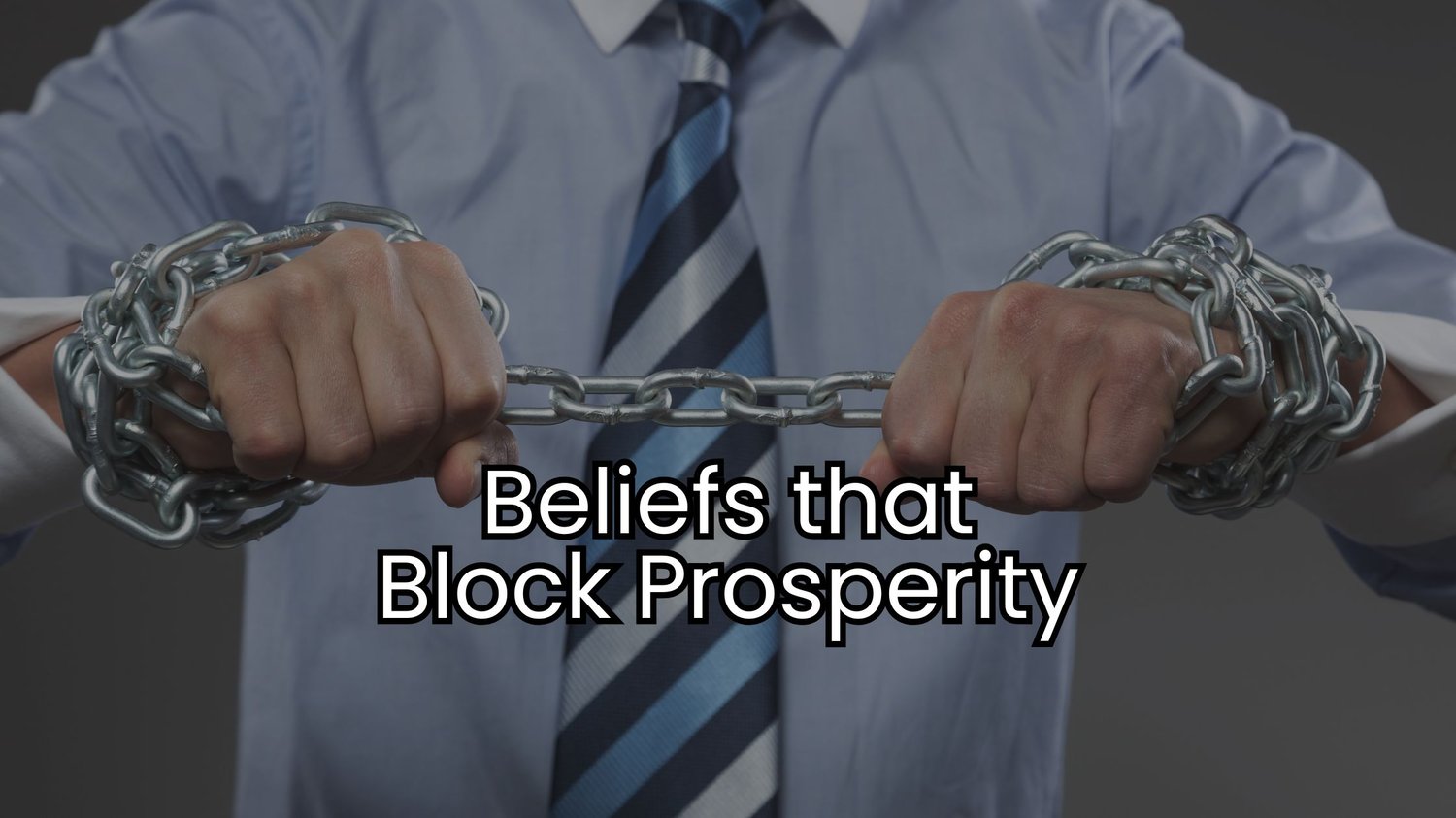I was taught in business school nine years ago that poverty is a mindset, and as I began to learn and apply new set of beliefs to replace limiting beliefs, I was shocked to realize that the source of poverty is ignorance.
I saw ignorant for what is was. Darkness, Stagnation, Uncertainty, Voluntary Slavery, Accumulated deception, Living in denial and the belief wholeheartedly in a lie.
If it is really true that the source of poverty is ignorance, let us examine some of the limiting beliefs that are promoted by ignorance.
Here are 10 limiting beliefs that contribute to a poverty mindset, inspired by teachings from Christian entrepreneurs like Bishop Wayne Malcolm, Dr. Myron Golden, and Taylor Welch:
1. "Money is the root of all evil."
This misinterpretation of biblical principles leads people to see wealth as inherently sinful, ignoring that money is a tool that can be used for good when aligned with godly values.
2."God wants me to be poor to stay humble.
Many believe poverty is a sign of holiness or humility, failing to recognize that God desires abundance to bless others through His people.
3."I can only earn what I need to survive."
This belief caps income at a basic level, ignoring the principle of stewardship and multiplication of talents taught in Scripture.
4. "Wealth is for other people, not me."
A lack of self-worth and faith in God’s promises keeps individuals from pursuing prosperity as part of their divine inheritance.
5. "If I give, I’ll have less."
This contradicts the biblical principle of sowing and reaping, where generosity leads to increase and multiplication.
6. "I need to wait for God to bless me before I act."
Instead of taking faith-driven action, people often wait passively, neglecting their role in co-creating success with God.
7. "Rich people are greedy and dishonest."
This stereotype fosters distrust of wealth and creates internal resistance to becoming successful.
8. "I shouldn’t charge for what God has gifted me to do."
Many feel guilty about monetizing their God-given talents, forgetting that labor is worthy of its reward (Luke 10:7).
9. "The economy decides how much I can earn."**
This belief places external circumstances above God’s ability to provide, limiting financial growth to worldly systems.
10. "Success requires sacrificing faith and family."
Believing that wealth must come at the cost of spiritual or relational priorities discourages people from pursuing it with a balanced approach.
The Truth:
Wayne Malcolm, Myron Golden, and Taylor Welch emphasize that wealth, when pursued with godly principles, is not just about material gain—it’s about stewardship, impact, and obedience to God’s call to expand His kingdom. Embracing an abundance mindset rooted in faith allows Christian entrepreneurs to break free from these limiting beliefs.


Comments ()